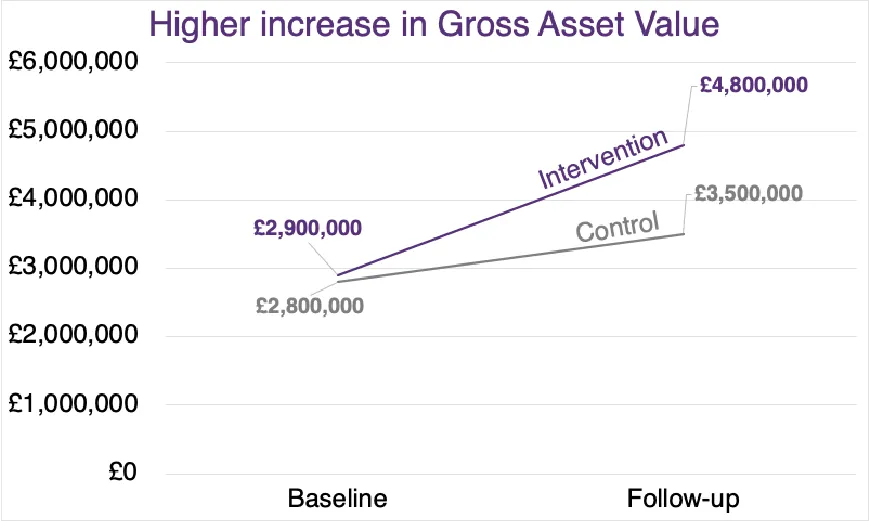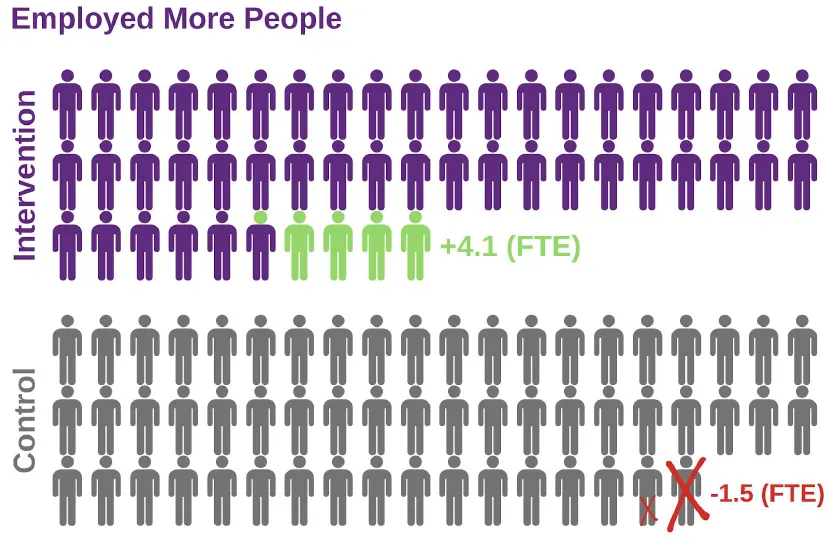
STAR® Manager Helps Leaders & Managers
Generate Commercial Success
Highlights of the London School of Economics' report on the Innovate UK trial 2020 results
Background:
While 'Coaching' is an acknowledged method for improving performance and productivity, it typically
reaches less than 5% of an organization (e.g. Executive Coaching programs for senior managers).
STAR® Operational Coaching conversely, democratizes coaching by enabling all leaders and managers to
develop the skills and adopt permanently into their everyday management style, a particular set of
coaching-related behaviors that can be used frequently on the job, throughout the day with the other 95% of employees. In short, it helps them to develop more of an engaging, ‘enquiry-led’ style which can generate a range of positive organizational outcomes.
STAR ® Operational Coaching™ built around Notion’s STAR® Model, embeds the practice of asking powerful questions.

After a decade working with corporates, Notion’s STAR® Model came to the attention of the UK Government
as potentially offering an “advancement in the science and practice of management” that might positively
affect SME productivity. Notion were consequently awarded Innovate UK funding for an extended SME
trial of Notion’s award-winning, blended management development program STAR® Manager.
A 6-month randomized control trial of the STAR® Manager program was designed and later evaluated by the
London School of Economics and Political Sciences (LSE), and was run during the 2020 Covid-19 pandemic
across 60 SMEs with 354 participating Managers.
Results:
Despite the ravages of the pandemic, the primary outcome (“increase in the proportion of time
spent ‘coaching”) achieved a statistically significant, fully adjusted mean difference of +13.8% between
the Intervention and Control groups. In effect, Managers in the Intervention Group spent +70% more time
coaching whereas the Control Group decreased the amount of time they spent coaching by -14%. Faced
with the COVID-19 crisis, the default response of control group participants was simply to ‘do’ more.
STAR ® Operational Coaching™ built around Notion’s STAR® Model, embeds the practice of asking powerful questions.
The
intervention
group showed
positive shifts in
time spent
Coaching &
Leading
The
intervention
group showed
positive shifts in
time spent
Coaching &
Leading

..and spent less
time Managing &
Doing
This is the desired
behavioral
change that
STAR® Manager
has been
designed to
achieve
..and spent less
time Managing &
Doing
This is the desired
behavioral
change that
STAR® Manager
has been
designed to
achieve

Additional outcomes of the trial identified positive trends in a number of SME outcomes at 6-month
follow-up when compared with the non-participating ‘control group’. a range of positive organizational
outcomes.
Higher growth in the Intervention Group
during the pandemic

Increased levels of recruitment
-more staff taken on than control group

Positive Change in key behaviors -An improvement was also detected in 9 coaching-related competencies

Summary:
Qualitative successes collected from 62 learners from the intervention cohort reported $26million
of potential benefit across 166 successes (an average of 74 x ROI per participating manager).
Qualitative process evaluation data shows that Learners valued the new skills they were learning and were
keen to share them and the benefits of the program with others in their organization.
Despite the pandemic, 63% of intervention learners have been self-motivated to continue their STAR®
Manager journey beyond the formal closure of the ‘trial measurement window’. This is a testament not only to
the value that they’re deriving from the program, but also to the capability of the program itself to
stimulate learner engagement and momentum without the need for expensive classroom-based training;
STAR® Manager is an automated intervention.
Notion found that when leaders and managers use a
‘STAR® Operational Coaching™’ approach, they begin to
‘tune in’ to the opportunities around them more often and
are able then to ask better and more insightful questions of
themselves and others. This in turn can contribute to a
culture which invites curiosity, debate and new dialogue,
stimulating a response to ongoing change that is altogether
more proactive and which can lead to increases in employee
engagement, productivity, performance and growth levels.


www.kmpconsultants.com